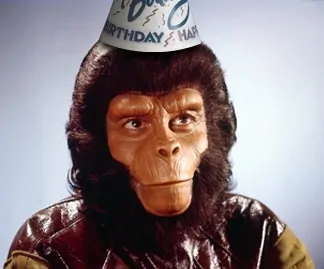
Besides Valentine’s Day, the month of February also marks the 200th anniversary of the world’s most renowned evolutionary biologist: Charles Darwin. Darwinians are busy celebrating this man and his theory of evolution, a theory that debunks God as the creator of man.
Caught in the festive mood of Darwin’s birthday, it may come as a surprise to the scientific world that Darwin is not as popular as they portray him. Despite the technological revolution and advances in science, and regardless of learning the theory of evolution in their high school biology classes, a majority of the Western world are still creationists who believe God made man.
One should not forget the force of religion is extremely strong in society, and the common man is weary of believing he has evolved from the ape. Man is not a social animal—he is a unique creature endowed with an insatiable curiosity to discover his own roots. It is we who wonder who we are—not the animals. It was not an animal that wrote the book The Origin of Species. It was a man, driven by a transcendental desire to discover himself, who set out to explore the species.
In Darwin’s homeland of the United Kingdom, the respected polling firm ComRes has reported that the public doubts Darwin’s theory. According to the Daily Telegraph newspaper, poll results showed that, “In the survey, 51 percent of those questioned agreed with the statement that ‘evolution alone is not enough to explain the complex structures of some living things, so the intervention of a designer is needed at key stages.’”
The Gallup Poll in the United States reports that fewer than four in 10 people believe in evolution. The survey shows only 14 percent of people believe in evolutionary theory, while the Pew Research Center puts it at 26 percent.
Both Gallup and Pew reveal that 43 percent of Americans favor the creationist theory. These results are not good news to evolutionists and secularists.
In an attempt to rescue Darwin from dissolution into history, secularists are on a busy campaign of placing billboards that read “Praise Darwin” and “Evolve Beyond Belief.”
In the great enterprise of science and evolution, this type of “God language” is freely used to lend credibility to the Darwinian movement. In the U.K., prayers were offered at the tomb of Darwin as a sign of respect. The West is so Christianized in its culture and ethos, it’s simply impossible to rid religious language and substitute it with scientific language. We may even argue that in the great battle of the survival of the fittest, religion has overwhelmingly evolved as the dominant belief of humankind, where the idea of God has deeply entrenched itself into the human heart.
In a sense, we can agree that Darwin’s idea of evolution did turn into a revolution. However, today it risks the danger of dissolution. It’s not that his ideas are construed as completely false, but there may not be any serious takers for the following reasons:
1. Belief in God as the Creator of man provides man with intrinsic dignity. The Christian doctrine that man was created in God’s image grants man a profound honor that evolutionary theory cannot. We may like animals, even have them as pets, but if we were to decide between a human baby and a cat, many would favor the human baby. I wonder how many parents would spend their money treating their dogs for depression if they had a child suffering from a terminal illness.
2. During Darwin’s day, the discovery of DNA was unheard of. Today, the miracle and mystery of DNA reveals incredible sophistication and engineering that is hard to believe could have evolved by mutation without supernatural intervention.
3. In Darwin’s Black Box, renowned biochemist Michael Behe writes about "irreducible complexity" at the molecular level. Cells in the human body are complex and arranged in an intricate design, arguing for a designer.
4. Leading Nazis and early-1900s influential German biologists revealed in their writings that Darwin’s theory and publications had a major influence on Nazi race policies. Darwinism at its root deems the value of life to be nothing beyond survival, thus placing adaptation of the species beyond individual human life. A belief system that, when distilled, leaves no value on an individual’s existence does not settle well with most people.
5. Darwin’s theory of evolution offers no hope for a dying man because it proclaims a universe without ultimate meaning. People are not satisfied to know only of their origin—they long for answers to their condition, salvation and destination. As such, very few are wholly content in Darwinism but feel compelled to search outside of it.
There are many books that attempt to explain Darwin in purely atheistic terms. However, newer research on Darwin reveals he was an agnostic—he doubted the existence of God. He was a churchgoing man, but later rejected traditional Christianity. In many ways, Darwin was out to discover the meaning of life and ended up settling on the origin of it. But we are not creatures with mere physical bodies. We have a soul and a spirit that is transcendental. How can a soul and a spirit mutate through natural selection?





















